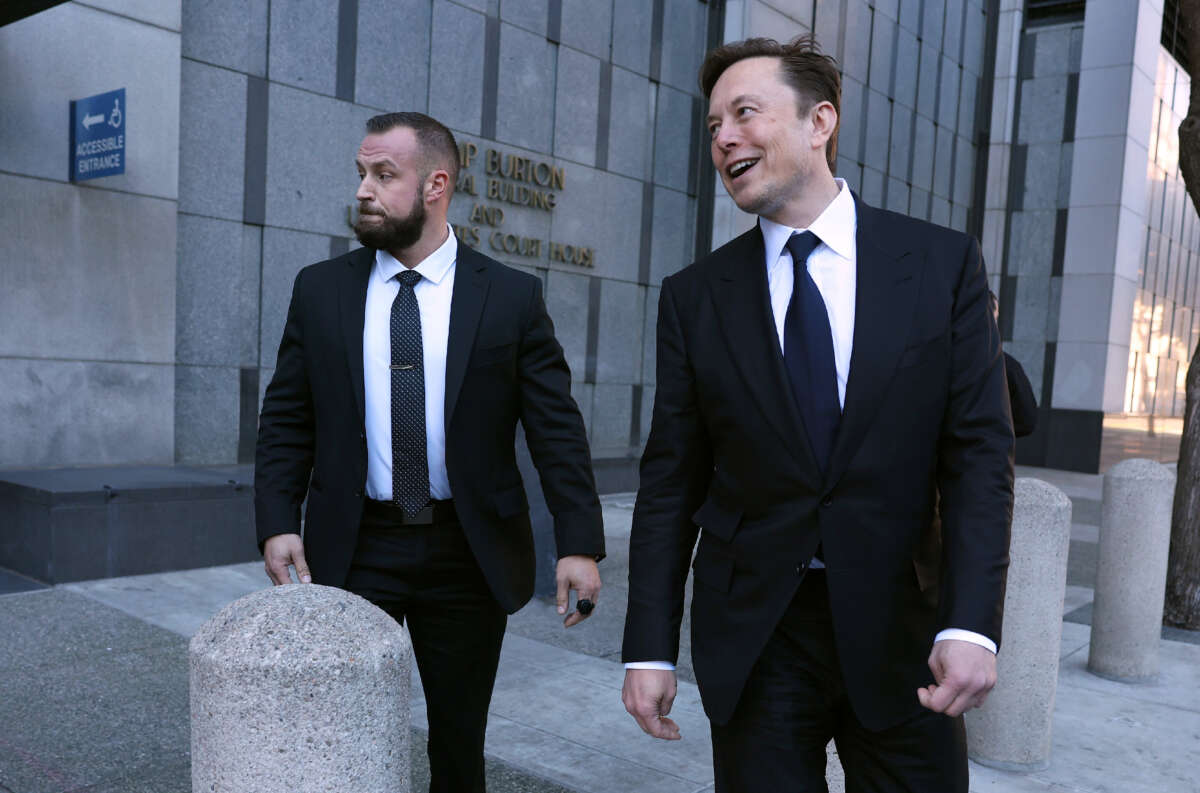Did you know that Truthout is a nonprofit and independently funded by readers like you? If you value what we do, please support our work with a donation.
Elon Musk went on a tirade against NPR on Wednesday, calling for the outlet to be “defund[ed]” after it announced that it will no longer be posting on Twitter in the wake of the right-wing billionaire’s latest attacks on journalism and the free press.
“Defund @NPR,” Musk wrote on Wednesday afternoon as he fired off numerous tweets attempting to justify the decisions that ultimately drove the outlet off the website. Earlier that day, NPR said that it will no longer be posting on the website after Twitter labeled its account “state-affiliated media.”
“At this point I have lost my faith in the decision-making at Twitter,” said NPR CEO John Lansing, adding that he “would need some time to understand whether Twitter can be trusted again,” before deciding whether NPR would ever return to the platform.
The “state-affiliated media” label, seemingly assigned at Musk’s behest, has been condemned by journalists and free press advocates as an attempt to delegitimize NPR’s work, likely motivated by the right’s perception of the outlet as left-leaning. That lean has long been disputed by those actually on the left, who maintain that NPR routinely elevates right-wing voices and whitewashes and legitimizes imperial violence — all while parroting talking points hand-picked by its corporate sponsors.
To the right, however, it’s irrelevant that the gap between NPR’s and Musk’s ideologies may not be as wide as it appears — it only matters that the public believes that NPR leans left, as with other establishment outlets frequently attacked by the right, like CNN or The New York Times. Ultimately, far right attacks on the media serve to push traditionally “center” outlets, like NPR and The New York Times, even further to the right; right-wingers have also hurled unfounded accusations of left-wing bias against other U.S. institutions, like the FBI, with the aim of pushing them further into fascism.
In order to bolster its claims that NPR is biased toward the left, the right has been attempting to inflate the proportion of funding that the outlet gets from the government; Musk claimed on Twitter on Wednesday that because NPR once pointed to federal funding as “essential” to its reporting, the outlet should not be considered legitimate. NPR shot back, pointing out that it gets less than 1 percent of its funding from federal sources and that, regardless of the proportion, the outlet operates independently, without government influence.
Largely excluded from the conversation, however, is the longtime left-wing position that public funding for the media is often a healthy function of a fair and democratic society. Without public money for journalism, media outlets become more and more reliant on corporate funding, which presents its own biases; according to NPR’s website, about 39 percent of its funding in recent years has come from corporate “sponsorships.”
Biases due to corporate sponsorship have been well-documented. Politico has long accepted sponsorship from corporations like Lockheed Martin and major fossil fuel companies, leading the outlet to parrot industry talking points; outlets like Axios have operated similarly. Meanwhile, corporations are gutting local news outlets across the country, posing a threat to democracy at large.
Twitter users and pundits have also pointed out that Musk’s companies have gotten tens of billions of dollars from federal and state governments, and have lobbied for yet more money from the government, even as Musk has publicly complained about government funding.
For many conservatives, however, the thrust of the squabble appears to boil down to a longtime struggle between the left and the political establishment: For the right, it is okay for the government to spend endless amounts of money funding corporations — socialism for the rich — but it is irresponsible or bad for the government to spend even a fraction of that amount on public goods — rugged capitalism for the poor.
Media that fights fascism
Truthout is funded almost entirely by readers — that’s why we can speak truth to power and cut against the mainstream narrative. But independent journalists at Truthout face mounting political repression under Trump.
We rely on your support to survive McCarthyist censorship. Please make a tax-deductible one-time or monthly donation.
